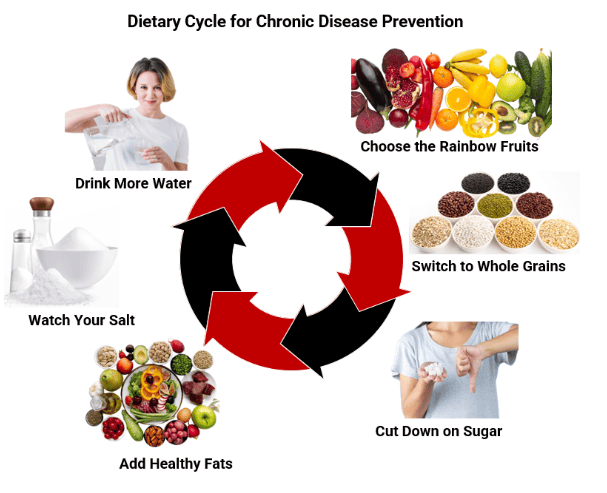Nutrition to Prevent Chronic Disease
With time comes a different kind of strength. In adulthood, the body no longer grows taller, but it grows wiser. It adapts, recovers, and resists challenges in new ways. But this silent adaptation needs fuel, not just food, but nourishment. The kind that reaches the cellular level, strengthens the immune response, balances hormones, and supports organs that have served for decades.
That is where nutrition steps in, not as a trend, but as a lifelong ally. You can explore more about how we support nutrition and wellness through our dietary counseling services.
Why Chronic Diseases Sneak In As We Age
Around the age of 40 or beyond, subtle shifts begin. Metabolism slows, inflammation becomes more persistent, and cellular repair is less efficient. Chronic diseases such as diabetes, heart conditions, hypertension, and some cancers do not appear overnight. They build up quietly over years of poor lifestyle habits. And often, nutrition is the most overlooked pillar of prevention.
To learn more about related age-linked conditions, visit normocytic anemia or explore our range of outpatient care services.
Nourishing the body today helps reduce the risk of chronic disease tomorrow.
How Good Nutrition Defends the Body
Good nutrition is more than a protective wall. It acts like an intelligent system that:
Fights Inflammation: Foods rich in antioxidants like berries, leafy greens, and turmeric help reduce inflammation, which is a root cause of many chronic conditions. For advanced support, check out our infusion therapy options.
Manages Blood Sugar: Whole grains, legumes, and fiber-rich foods keep blood sugar stable, helping to prevent type 2 diabetes. You can also explore supportive services like lab testing and wellness exams.
Lowers Blood Pressure: Potassium-rich foods such as bananas, sweet potatoes, and lentils help balance sodium levels and support heart health. Our IV fluid therapy can complement lifestyle-based care for circulatory support.
Protects the Heart: Omega-3 fatty acids from fish, flaxseeds, and walnuts help control cholesterol and prevent plaque buildup. Also, see how weight loss therapy can help reduce cardiac risk factors.
Supports Brain Health: A Mediterranean-style diet that includes olive oil, vegetables, nuts, and fish may slow cognitive decline. Learn about other related concerns, such as rare mental disorders.
Real Nourishment vs. Just Eating
Feeling full does not always mean you are nourished. A meal may satisfy hunger, yet still lack essential nutrients that the body needs for protection and recovery.
If your meals often look pale or beige and include a lot of fried or processed foods, chances are the diet is low in fiber, antioxidants, and healthy fats. This leaves the body more vulnerable to disease and long-term decline. If you’re managing specific conditions, consider resources like skin cancer excision or women’s health services.
Key Dietary Tips to Prevent Chronic Diseases
Let us make prevention practical and achievable. The following small changes can lead to big results:

- Choose the rainbow: Each color in fruits and vegetables offers unique benefits. Adding variety increases your intake of vital nutrients.
- Switch to whole grains: Brown rice, oats, and quinoa provide fiber and keep you fuller for longer.
- Cut down on sugar: Reducing added sugars helps lower inflammation and the risk of insulin resistance.
- Add healthy fats: Foods like avocados, nuts, seeds, and olive oil improve heart health and hormonal balance.
- Watch your salt: Preparing meals at home helps you control sodium intake.
- Drink more water: Even slight dehydration can affect energy and focus. Hydration supports all body systems.
To explore related outpatient services, visit minor surgeries, iron infusion therapy, or our allergy clinic.
You Don’t Need Perfection, Just Consistency
You do not need to eat perfectly every day. What matters most is your overall pattern. Favoring whole foods over processed ones provides your body with the right tools to heal, repair, and stay resilient.
Simple swaps, such as choosing fruit instead of sugary desserts or adding greens to your plate, can make a lasting difference.